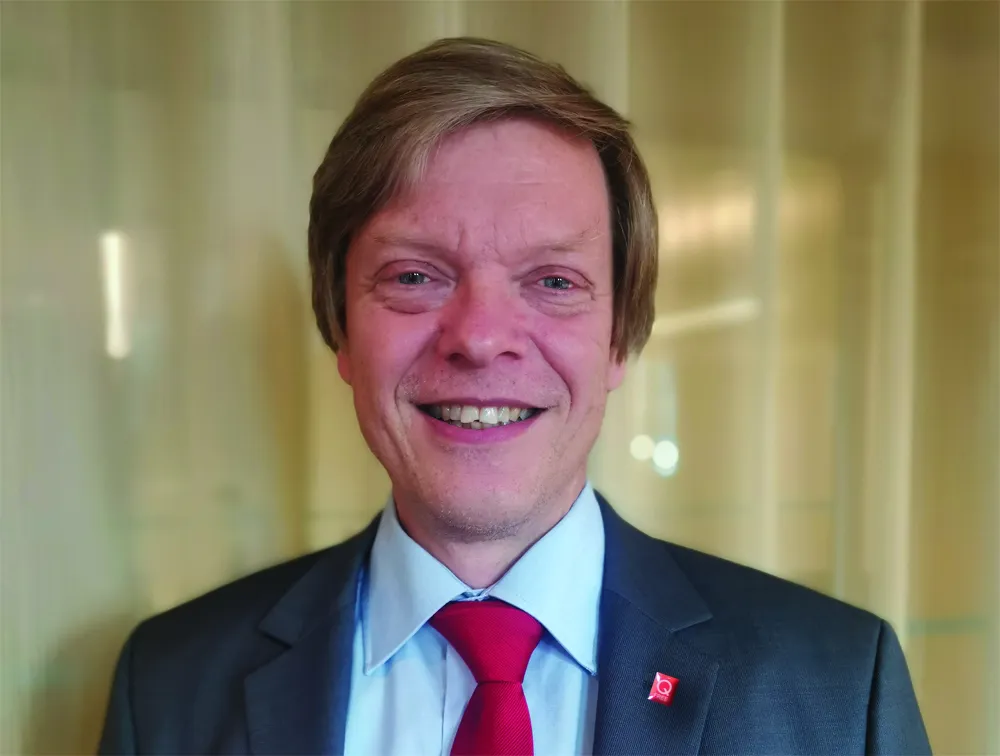South Africa’s Department of Environmental Affairs (DEA) has launched a zero emission electric vehicle pilot programme, which would see it trial a fleet of electric vehicles. Speaking at the launch, water and environmental affairs minister Edna Molewa said the multi-stakeholder partnership project would pilot, test and demonstrate the viability of electric vehicles under South African conditions. The pilot programme would also serve to determine end-user, infrastructure and running costs associated with loc
February 28, 2013
Read time: 3 mins
South Africa’s Department of Environmental Affairs (DEA) has launched a zero emission electric vehicle pilot programme, which would see it trial a fleet of electric vehicles.
Speaking at the launch, water and environmental affairs minister Edna Molewa said the multi-stakeholder partnership project would pilot, test and demonstrate the viability of electric vehicles under South African conditions.
The pilot programme would also serve to determine end-user, infrastructure and running costs associated with local electric vehicle use, energy minister Dipuo Peters added.
838 Nissan South Africa, the primary private sector partner for the programme, would provide the DEA with four Nissan Leaf electric vehicles for the initial phase of the project, which would run for three years. The vehicles would be charged using department-based charging stations with dual-grid connections.
“This project is not only about the electric cars themselves, but also about what kind of supporting infrastructure, such as battery charge stations, need to be in place to enable a significant uptake and use of electric cars in the country,” Molewa added.
The DEA’s fundamental motivation for embarking on the programme was an urgent need for South Africa to transition to a job-creating, sustainable, low-carbon and green economy, as outlined in the National Development Plan.
In addition, the initiative was a practical implementation of the outcomes of the seventeenth Congress of the Parties (COP 17), held in South Africa in 2010, and was aligned with the National Climate Change Response Strategy.
DEA facilities manager Dr Edwin Maseda added that the DEA wanted to tangibly indicate its commitment to environmental integrity through its infrastructure and development projects. “We did not want COP 17 to be perceived as another ‘talk shop’ with no real outcome. We have to 'walk the talk',” he commented.
The programme would also seek to provide an environment that encouraged the domestic automotive industry to prepare for the transition to alternative propulsions systems.
“This initial public fleet should drive the adoption of electric vehicles by other government departments, as well as civil society,” he noted.
The Leaf will be commercially launched in South Africa by the end of this year, making Nissan the first manufacturer to introduce a fully electric vehicle in the country. Nissan SA CEO Mike Whitfield emphasised that, while the Leaf was an electric vehicle, it was more responsive than a conventional compact family car and could reach speeds in excess of 140 km/h.
Speaking at the launch, water and environmental affairs minister Edna Molewa said the multi-stakeholder partnership project would pilot, test and demonstrate the viability of electric vehicles under South African conditions.
The pilot programme would also serve to determine end-user, infrastructure and running costs associated with local electric vehicle use, energy minister Dipuo Peters added.
“This project is not only about the electric cars themselves, but also about what kind of supporting infrastructure, such as battery charge stations, need to be in place to enable a significant uptake and use of electric cars in the country,” Molewa added.
The DEA’s fundamental motivation for embarking on the programme was an urgent need for South Africa to transition to a job-creating, sustainable, low-carbon and green economy, as outlined in the National Development Plan.
In addition, the initiative was a practical implementation of the outcomes of the seventeenth Congress of the Parties (COP 17), held in South Africa in 2010, and was aligned with the National Climate Change Response Strategy.
DEA facilities manager Dr Edwin Maseda added that the DEA wanted to tangibly indicate its commitment to environmental integrity through its infrastructure and development projects. “We did not want COP 17 to be perceived as another ‘talk shop’ with no real outcome. We have to 'walk the talk',” he commented.
The programme would also seek to provide an environment that encouraged the domestic automotive industry to prepare for the transition to alternative propulsions systems.
“This initial public fleet should drive the adoption of electric vehicles by other government departments, as well as civil society,” he noted.
The Leaf will be commercially launched in South Africa by the end of this year, making Nissan the first manufacturer to introduce a fully electric vehicle in the country. Nissan SA CEO Mike Whitfield emphasised that, while the Leaf was an electric vehicle, it was more responsive than a conventional compact family car and could reach speeds in excess of 140 km/h.







